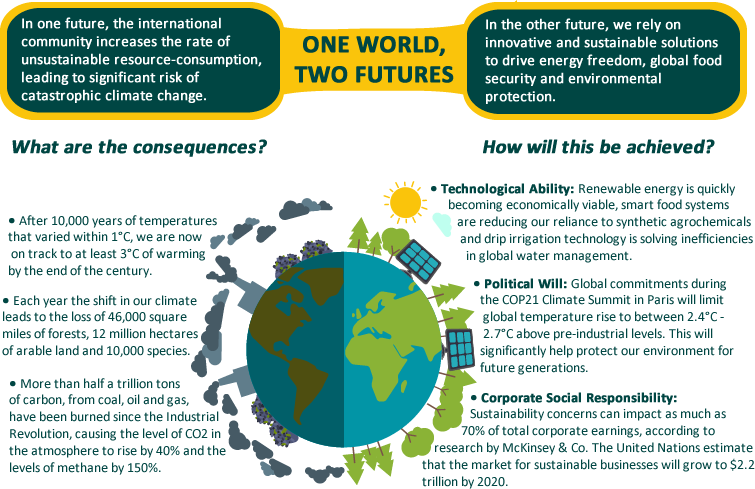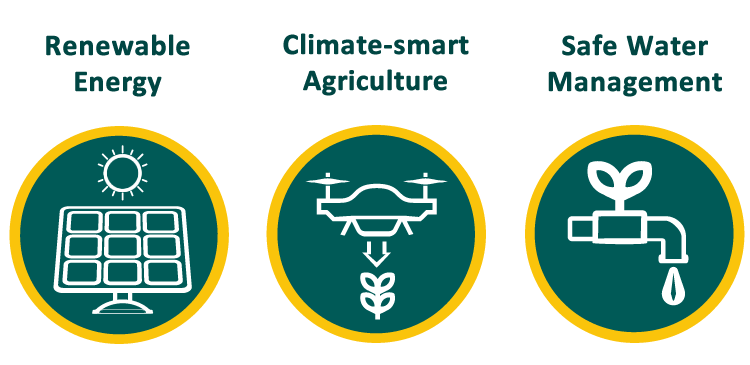Our environment provides the very foundation for all life on Earth, offering the resources and natural services essential to our own survival. It is therefore our responsibility to play an active role in the protection and strengthening of the vast and beautiful world in which we live. With Earth Day scheduled for Saturday, April 22nd, 2017, this week has been filled with celebrations of the decisive and revolutionary movements being made towards a cleaner, safer and more sustainable future.
Our climate tells one of the most important stories of our age, due in part to its symbiotic relationship with global economic development. Great civilizations have been formed and devastated at the hands of our environment and its ability to determine access to resources. Although straightforward, one of the underlying sources of stress and conflict in the world can be traced to global economic growth reaching an environmental and ecological point of no return.
Over the last two centuries, human civilization has made remarkable progress, forming an entirely new and converging world through industrialization, globalization and economic development. By prioritizing growth above all else, our economic system has come to depend exclusively on increasingly unsustainable levels of consumption. Fueled by a system that thrives on carbon and capital, we have achieved such progress by extracting, producing and consuming resources at an alarming and ever-increasing rate. This has led to profound environmental stress, causing the collapse of regional economies and the creation of ‘cancer villages’ across China. Ecosystems and communities have been devastated across the Amazon in Brazil. In Africa, thousands of farmers have abandoned their land for greener pastures. Why is there such a reliance on this damaging and unsustainable economic system, when it causes obesity, cancer, conflict and instability around the world? This system is unnecessary, especially when projects, such as our own, offer sustainable value-creation through environmental protection and social responsibility.
Despite the unprecedented challenges the world faces, it’s important to note the impressive progress towards sustainability that mankind has made over the last few decades. Renewable energy is quickly becoming a viable alternative, smart food systems are reducing our reliance to synthetic agrochemicals and drip irrigation technology is solving inefficiencies in the management of our global water resources. There are many social, environmental and financial benefits associated with these practices and all of them, from reduced emissions and cleaner air to increased soil health, are enjoyed throughout our projects in Brazil. Using neem in combination with the latest innovations in agro-ecology, we are building an entirely new and sustainable agricultural system that can be applied anywhere in the world. The profound opportunity to reform industry not only applies to agriculture, but also across the energy, healthcare and construction sectors, among others.
We need to change the way in which we discuss the climate. Rather than focusing on the damaging nature of our existing socioeconomic system, let’s instead direct our attention to the profound opportunity environmental protection has to catalyze innovation, competition, energy freedom and food security. In this case, failure is not an option. We have the knowledge and technology necessary to evolve our relationship with the environment through positive and profound action.

